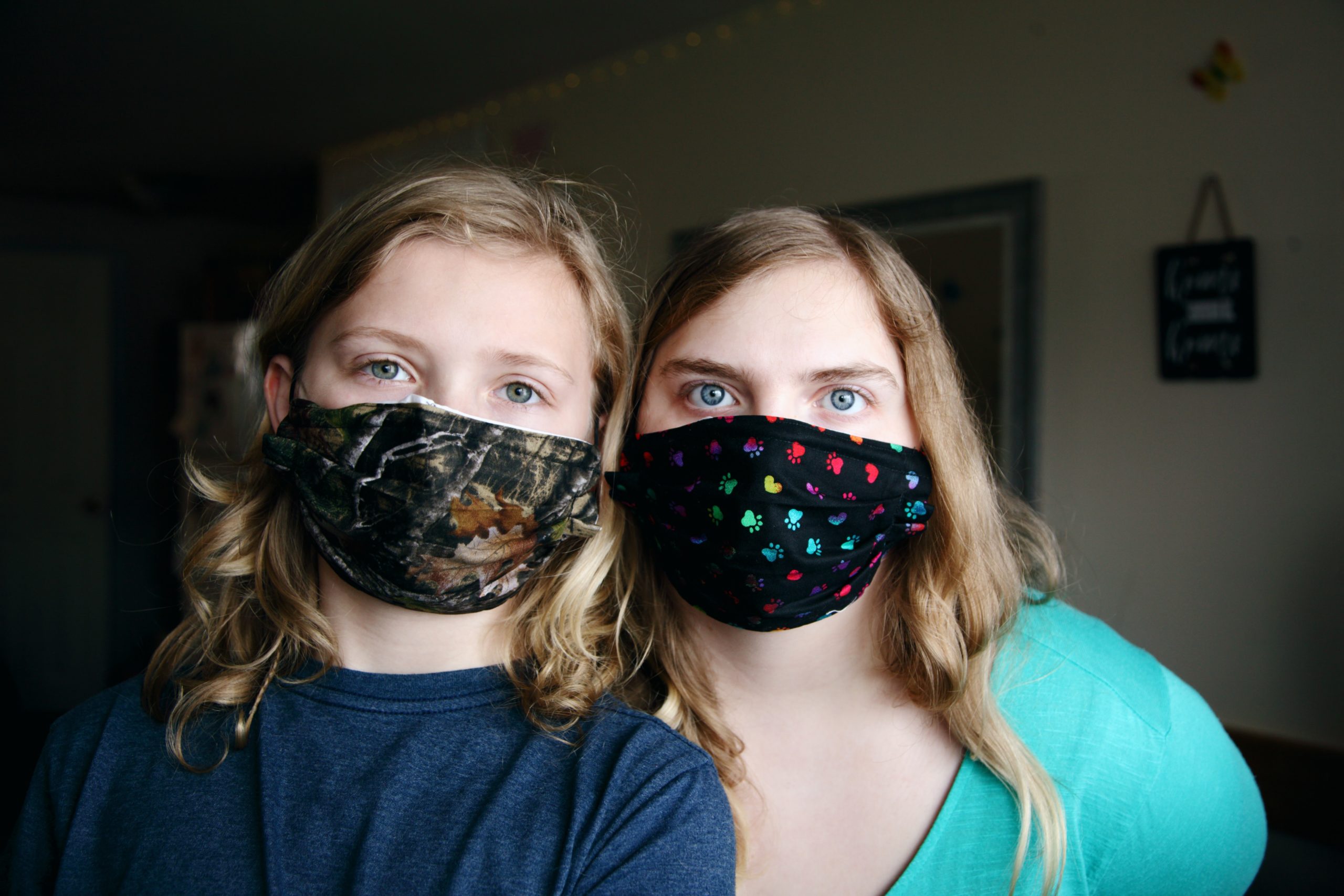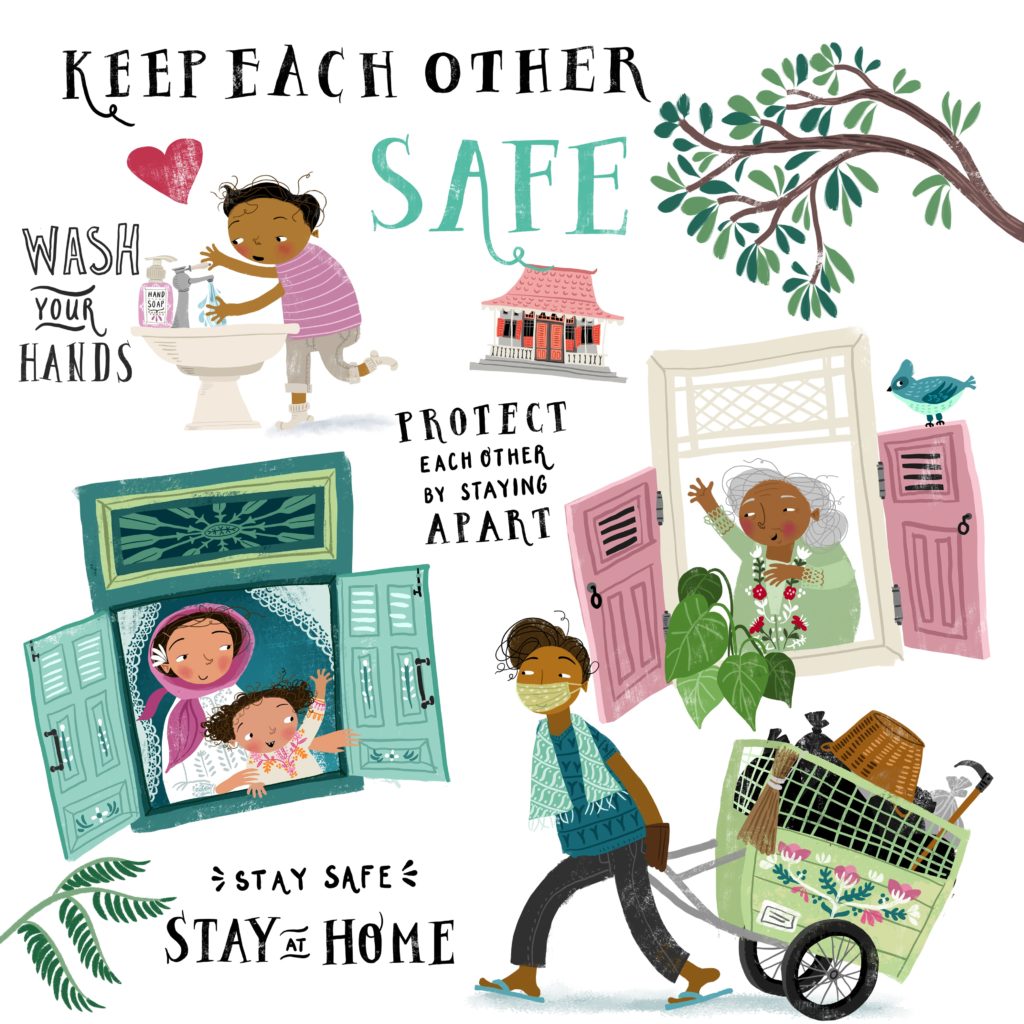
Parents face a unique struggle with COVID-19. It’s one thing to keep yourself clean and away from the virus, but it’s another thing to apply those measures to your energetic and innocent child. Try these tips to help your family weather this crisis safely and in good health.
1) Explain Why Hand Washing Works
Kids are smarter than you think. If you explain why they need to do something, they will be able to adopt the behavior in a way that works for them.
Tell your kids that hand washing is the most effective way to avoid catching any kind of virus. Tell them that soap breaks down the outer shell of the virus; if you want to use simpler language, you can say that the soap kills germs. Teach them a good hand washing method, and encourage them to wash their hands as often as possible.
Even if your kids don’t understand perfectly, they will appreciate that you have offered them a real explanation. Use gentle reminders to help them adopt hand washing as a standard way of life.
2) Model Cleanly Behaviors
Children copy their parents. In times of peace, this looks like an adorable quirk of childhood. But when something like COVID-19 rears its head, copycatting suddenly becomes a huge evolutionary advantage.
Become an example of cleanliness that your kids can look up to. Wash your hands religiously. Grab a new water cup instead of reusing the old one, and run the dishwasher so your kids have the ability to follow suit. Wipe down surfaces, do the laundry more often, and hop in the shower to disinfect after you come back from the grocery store.
Your kids won’t be able to copy you perfectly, but they will do their best to mimic your actions. They’re looking to you for leadership, so show them a path that will keep them healthy and safe.

3) Enforce Social Distancing
The weather is warming up, schools are closed, and your kids are starting to get a little stir crazy. But as much as it may break your heart, you need to say “no” when they ask if they can play with their friends.
Asymptomatic carriers are a reality of COVID-19, and the virus can live on surfaces for hours or even days. You have no way of knowing how well other households are maintaining their quarantine, and that means that a play date is currently out of the question.
Luckily for your kids, physical distancing doesn’t have to mean total social isolation. Encourage your children to stay in touch with their friends with phone calls, text messages, and video chats. Relax the household restrictions on computer and phone use; if you’re worried about safety, increase your personal oversight. Right now, the most important thing is that your kids stay connected without putting themselves or their families at risk.
4) Provide Facial Covers
Current CDC recommendations state that everyone should wear a face mask whenever they leave the house. Cloth face masks help isolate your breath to your own personal space, protecting you from others and protecting others from you.
Although many Americans are sporting hand-sewn masks, you don’t need to know how to make one to keep your kids safe. You can turn any piece of cloth into a bandana by folding it in half like a triangle; dish towels and old t-shirts are excellent candidates. The mask should cover your nose and mouth while allowing you to breathe. If it serves this function, it’s enough.
The most important thing to realize about face masks is that they need to be changed frequently. If you re-wear a mask, you will breathe in any particles that were trapped on the fabric. Provide facial covers, and provide plenty of them; your kids will breathe much better as a result.
5) Take Over the Chores
Kids do chores to learn how to do chores, not to get the chores done. And since cleanliness is currently a matter of safety for your family, now is the best possible time to give your kids a pass on the dishes.
Until COVID-19 passes, an adult should complete every household task that involves washing or sanitizing. Older teenagers may offer to help, but if you doubt the efficacy of their methods, simply take the work onto yourself. Divert your kid’s chore time to simpler and less stressful tasks like feeding the pets, picking up their room, or catching up on that online homework.
Children want to help and participate in the struggles of life, but the truth is that they’re simply not mentally or physically ready. As a parent, the best thing you can do is act like the adult that you want them to grow up to be. When they face a similar crisis in their adulthood, they will remember your efforts and do the same for their own children.





















